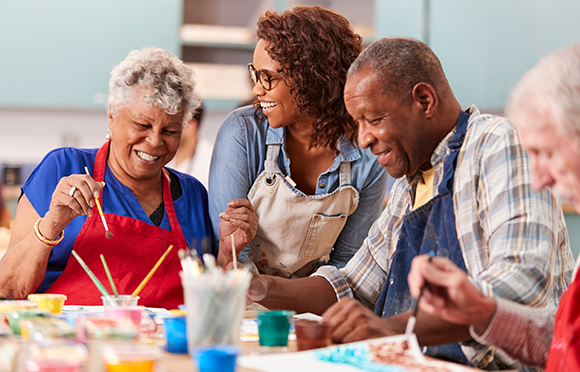Tips To Ease Loneliness For Older Adults

Loneliness can be a significant issue for older adults, but there are various ways to help them cope and improve their well-being. Whether you are worried about your parents or other loved ones, you can help by lending a sympathetic ear and spending time with them.
Here are some tips you can suggest supporting older adults in dealing with loneliness:
- Encourage social engagement: Encourage older adults to maintain and develop social connections. Options could be joining community groups, attending local events, participating in senior centers, or connecting with friends and family members.
- Volunteer opportunities: Suggest volunteering to stay socially connected and engage in meaningful activities. Volunteering helps others and provides a sense of purpose and fulfillment.
- Technology assistance: Teach older adults how to use technology and social media platforms to connect with loved ones, join online communities, and participate in virtual events or classes.
- Pet therapy: Pets can provide companionship and reduce feelings of loneliness. Consider suggesting pet adoption or fostering for older adults who can care for a pet.
- Encourage physical activity: Regular exercise can improve mood and overall well-being. Encourage older adults to engage in activities such as walking, tai chi, or water aerobics, which can also be group social activities.
- Reminisce and share memories: Encourage older adults to reminisce and share their life experiences with others, whether through storytelling sessions, writing memoirs, or joining clubs centered around shared interests or experiences.
- Offer transportation assistance: Limited mobility can contribute to loneliness. Offer transportation to social events or gatherings, ensuring that older adults can participate in social activities.
- Provide access to mental health resources: Offer information about local support groups, counseling services, or helplines for older adults who may need professional assistance to cope with loneliness or related mental health issues.
- Encourage hobbies and interests: Suggest pursuing hobbies and interests that align with the older adult’s preferences, as this can create opportunities for social interaction and enjoyment.
- Be a listening ear: Sometimes, all an older adult needs is someone who will listen and provide companionship. Offer your time to chat or spend time together regularly.
- Support group participation: Connect older adults with support groups for individuals facing similar life challenges. These groups can provide a safe space for sharing experiences and emotions.
- Regular check-ins: Stay in touch regularly with older adults who may be at risk of loneliness, even if it’s just through phone calls, emails, or video chats. Your consistent presence can make a significant difference in their lives.
Several Medicare Advantage and Medicaid health plans may offer a home-delivered meal benefit to their members. Those receiving home-delivered meals showed improved nutrient intake and quality of life. GA Foods has a care delivery team that can enter the members’ homes and place the meals in the freezer. These specially trained team members do a basic safety assessment and notify the case manager of any concerns.
To learn more about selecting a home-delivered meal provider, download our guide.

Bushra Davila is the Vice President of Clinical Program and Product Development at GA Foods. She is a registered dietitian and an expert in nutrition education, program development, and product brand management. Her work focuses on diet and nutrition, digestive health, and food as medicine principles. Bushra earned a Bachelor of Science (BS) in Dietetics and Nutrition from Northern Illinois University and a Masters in Business Administration from Dominican University.

